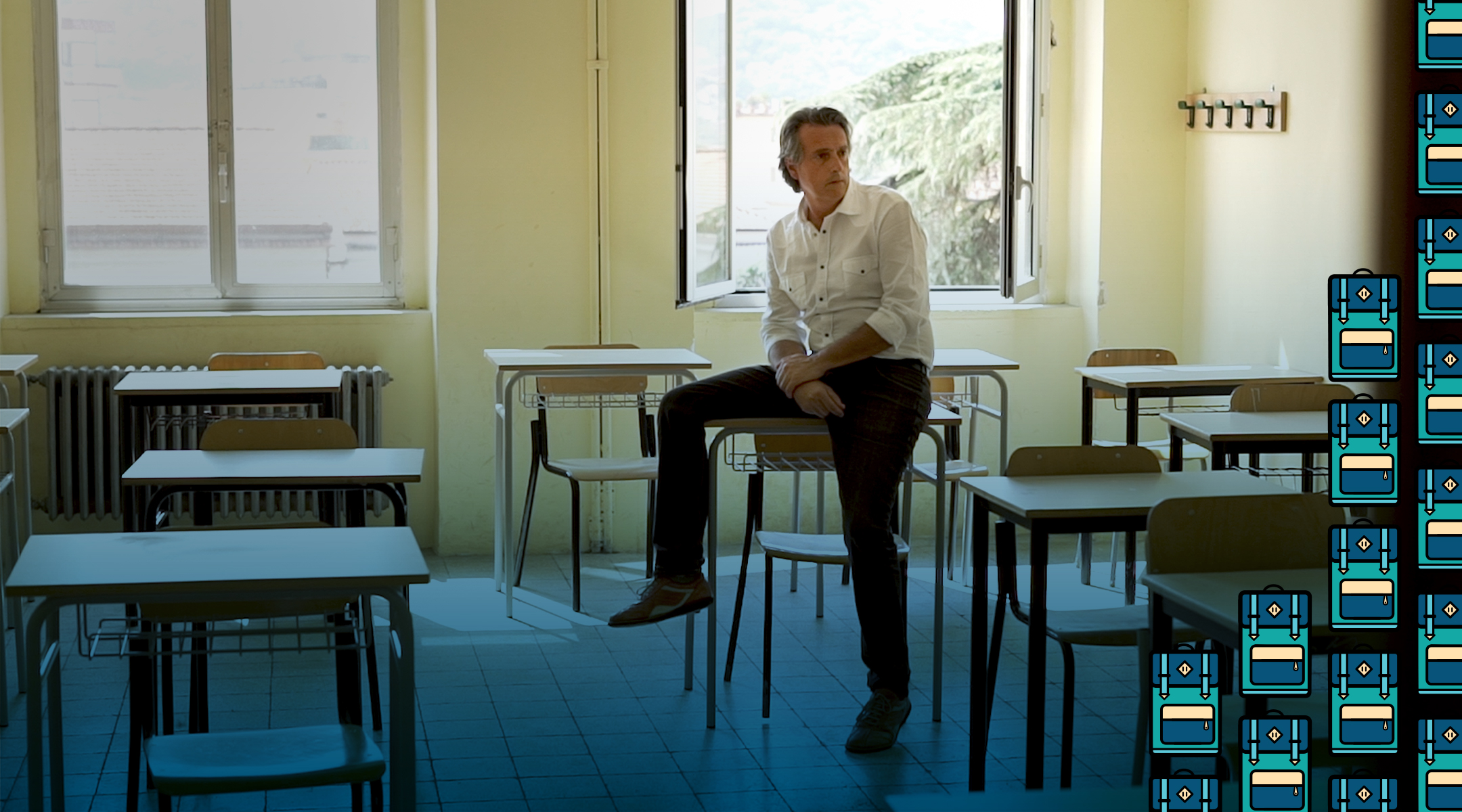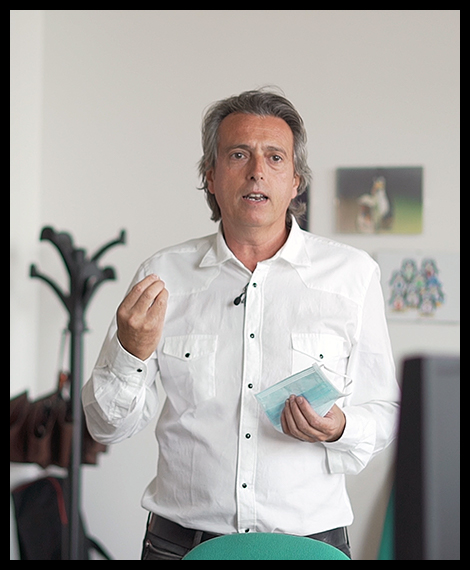Login🔥
New to Challenges? Register➡️Are you a Replyer?
Access with Reply credentials
Why challenge-based learning is so important from one of the world's best teachers
"Nerds will conquer the world", says Carlo Mazzone proudly, and we’re pretty convinced too.
Okay, but who is Carlo Mazzone? Well, Professor Mazzone teaches IT at a high school institute in the south of Italy and he really is special. Why? Because he’s one of only 10 finalists in the prestigious Global Teacher Prize – a competition where more than 12,000 teachers from 140 countries compete to win one million dollars in funding for education.
He believes technology can drive people to go beyond their limits, both in creativity and in logical reasoning. Which is why, he encourages his students to enter Reply Challenges as part of their learning.
A Reply Challenge is a great opportunity for students to assess their level of knowledge. Not in absolute terms, but in relation to others: a necessary condition to keep improving.
A small example? In the last Reply Code Challenge, more than 20000 people from 96 countries joined the competition and challenged themselves with an optimisation problem.
We took the chance to interview Prof. Mazzone on the role of IT, Reply’s Challenges and their important role in education.
themselves with others


Prof. Mazzone, where does your passion for technology come from?
I've always been fascinated by technology and science. As a child, I wanted to become a scientist. And back then, information technology wasn't a school subject, so the only way was to join a correspondence school and build my own electronic stuff at home – not always successfully. (I can still smell that burnt transformer!).
But at the time, the biggest difficulty was finding people with the same passion as me, to relate to, challenge, and enhance my knowledge. That's why now, I push my students to keep challenging themselves with others – as happens in a Challenge. Before becoming a teacher, I worked for an IT systems company, which for me was great fun. It was like having a free pass to the amusement park every morning, because I had access to the newest IT kit that I could never afford. Now, as a professor, I teach my students to see an IT specialist as someone with a cultural mind, like a philosopher, rather than just as a technician. Many people think IT is just about sitting in front of a screen and typing on a computer. We need to change that, because to me, IT is a creative act.
And what are your views on hackers?
I strongly believe in the positive meaning of the word “hacker”.
For me, it’s someone who wants to dissect things to see how they work, to look at their insides, to go beyond what their professors teach them. Hacking is this: not stopping at the task you’re given, but going further and doing more to expand your practical knowledge. Unfortunately, over time and perhaps for journalistic reasons, the word “hacker” has changed to mean someone that breaks into systems (who are both crackers and lame). I use the term to describe someone whose passion pushes to them to look beyond the surface of things. And you can be a hacker in anything you want – from archeology to literature to zoology.
but going further and doing more
to expand your practical knowledge
I try to invert the paradigm in my lectures
What's your approach to teaching?
I believe in a mixed approach combining entrepreneurship in IT and hacking that prepares students for the real world.
Teaching is about giving your knowledge to others generously. I know what being a student means, and I think the teachers we have in life are key to our growth. Many of us remember the teachers who’ve had a positive impact on us, which is why I’m keen teachers I want to shed a positive light on my students. From a practical teaching point of view, I try to invert the paradigm in my lectures. For example, I ask my students to come to lessons to tell me what they do not know. This way, we can make sure they’re learning what they don’t know, rather than wasting time going over what they already know.
How do you teach IT entrepreneurship?
I created Vivariumware, a project where students in small groups are asked to develop innovative tech ideas and create brands that could become real start-ups. They then develop these ideas, using what they learn throughout the year. In this way, I can teach them not only the practical subject, but also how to work as a group, how to share and version their code, and how to pitch their ideas in front of real investors.
As I said, this allows me to invert the teaching paradigm: instead of giving them knowledge through lectures, the students come to me with questions to improve their own projects. As a result, they study more than they’re asked to. And rather than being just someone who gives a grade, I become someone who can help them make the most out of their projects. And sometimes they’re so protective of their ideas they won’t show them to me until they’re finalised. The cherry on top: some students have founded a start-up and went to a real investor round!




How do you see the future of IT education?
I think we need a new Digital Enlightenment. Global society is profoundly changing due to continuous technological innovation. Nowadays, information technology has permeated everyone’s lives, so those who working in the sector should have a deep knowledge of it, so they can recognise its real power and use only the 'light side of the force' and not its extreme boundaries such as the dark web. But you can only control these boundaries if you have a complete knowledge of them, only if you are a hacker – in the sense we've just talked about. You can prepare students to be great experts, but if you don't teach them how to use their knowledge, to use it for good, then you’ve failed as a teacher.
to assess their knowledge in relation to others
You promote the Reply Challenges among your students as part of a challenge-based learning. What is it about?
I think Reply Challenges embrace perfectly what I’ve said so far. The core of the Challenges is to build something practical, in the real world. Joining competitions like these allow students to test their skills and interact with others with similar passions. They also give individuals the opportunity to assess their knowledge in relation to others – a vital ingredient in improving knowledge. Similarly, an academic grade is important because it gives student an instant overview of their knowledge and lets them know were they can improve: but it must be constructive, never harmful. Reply Challenges are the ultimate example of this, as they give those taking part an incentive to improve their solutions, and, in the long run, their skills.
Want to be the next winner?
Register on Reply Challenges and get updates on the next challenge!